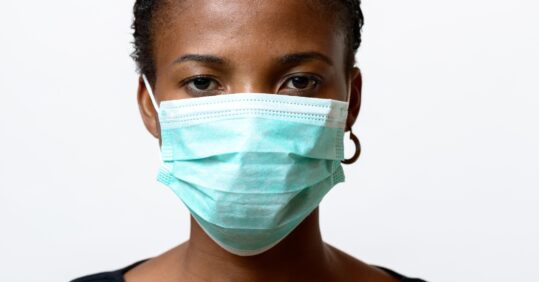PHE admits ‘humbling’ inequalities in BAME report

Public Health England has admitted the Covid-19 pandemic has exposed ‘humbling’ inequalities, as it published its delayed recommendations on reducing black, Asian and minority ethnic deaths.
The first report from the PHE rapid review, published earlier this month, confirmed that black, Asian and minority ethnic (BAME) people have a higher Covid-19 death risk in the UK – but was criticised for not including recommendations shaped from stakeholder feedback.
The second report, published yesterday, contained feedback from 4,000 stakeholders who highlighted that BAME NHS staff are ‘less likely to speak up’ over concerns around personal protective equipment because of historic racisms and poorer experiences at work.
Related Article: New digital support for community nurses in 10-year plan
Concerns were also raised that BAME people are more likely to work in occupations with higher risk of Covid-19 exposure, use public transport to travel and have poor socioeconomic circumstances, leading to poorer health outcomes.
The report’s recommendations included the mandatory collection of ethnicity data on death certificates and the development of ‘culturally competent’ risk assessment tools, which are particularly important for patient-facing roles such as nurses.
It said stakeholders ‘pointed to racism and discrimination experienced by communities and more specifically by BAME key workers as a root cause affecting health, and exposure risk and disease progression risk’.
PHE added that many BAME groups lack ‘trust of NHS services and health care treatment resulted in their reluctance to seek care on a timely basis, and late presentation with disease’.
Related Article: Nurse had to ‘freeze’ PPE during pandemic to re-use in care home, Covid inquiry hears
Clinical recommendations in the report included:
- strengthening targeted programmes for chronic disease prevention;
- culturally competent and targeted health promotion to prevent chronic diseases and multiple long-term conditions;
- targeting the health check programme to improve identification and management of [multiple long-term conditions] in BAME groups; and
- targeted messaging on smoking, obesity and improving management of common conditions including hypertension and diabetes.
In a letter accompanying the report, PHE chief executive Duncan Selbie said that it ‘confirms that the impact of Covid-19 has replicated existing health inequalities, and in some cases, increased them’.
He added that the insights ‘make for humbling reading’ and that ‘tangible actions’ must be delivered ‘at scale and pace’ to address the ‘underlying factors of inequality’.
Related Article: Tell us what practice nursing means to you and potentially win £1,000
The report comes as an independent review of Royal College of Nursing governance found that members and staff want more openness across the organisation and diversity in leadership roles.
Read more: Understanding the increased Covid-19 risk in men and BAME communities

See how our symptom tool can help you make better sense of patient presentations
Click here to search a symptom


Public Health England has admitted the Covid-19 pandemic has exposed ‘humbling’ inequalities, as it published its delayed recommendations on reducing black, Asian and minority ethnic deaths.



